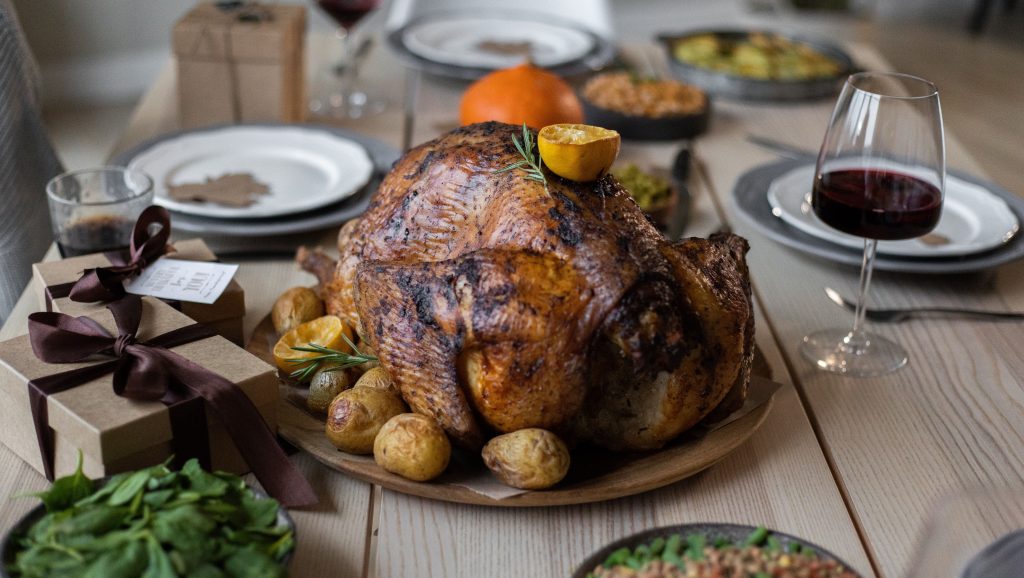It’s that time of year – the trees are up, the presents have been bought and the food is just waiting to be prepared!
But sometimes we find ourselves with too many leftovers from the big day that we couldn’t possibly finish before it goes bad or we’re not even sure how to freeze the gammon before Christmas lunch so that it’ll still be delicious.
Well, have no fear, we have the answers. Food24 spoke to Professor Gerrie du Rand, a consumer scientist at the University of Pretoria in the Department of Consumer and Food Sciences, to get her advice on best practices when it comes to freezing festive leftovers from big meals over Christmas.
Which festive foods can be frozen?
“Appetisers, desserts, side dishes and mains can be frozen,” says du Rand, as long as you make sure all food is cooled down before going into the freezer.
Foods that shouldn’t be frozen or don’t freeze well are:
- Whole eggs or eggs in the shell
- Dairy products
- Fried foods
- Carbonated drinks
- Fully cooked pasta
- Foods containing high amounts of water such as watermelon
- Soft herbs and lettuce
While du Rand says all meat can be frozen raw or cooked, “the golden rule is to never refreeze any item that has been frozen before or has defrosted”.
How long should I freeze meat for?
Different meats have different needs when being frozen, says du Rand. “It would depend on the type of meat, cut, level of preparation (minced/whole roast/cut into smaller pieces, in a marinade/brine, cooked/uncooked), size and packaging,” she says. “Four to six months at the longest, but two to three months is preferred.”
Here’s a handy table so you can keep track of your frozen foods:
- Cooked casseroles/combined dishes: 2-3 months
- Soups and stews: 2-3 months
- Uncooked meat: 4-6 months
- Mince: 4 months
- Uncooked chicken: 9 months
- Cooked chicken: 4 months
- Cooked fish: 4-6 months
“The safest way to defrost all foods is in the refrigerator, overnight in a container that can catch any liquids that may gather from the container or frozen item,” says du Rand. She suggests placing the item that needs to be defrosted at the bottom of the fridge so that it does not drip on any other items.
Remember to separate fresh and frozen items to prevent any cross-contamination from occurring, advises du Rand, and, always remember, if the food has been placed in the microwave to defrost, it must be cooked immediately.
What kind of illnesses could you pick up if food isn’t frozen properly?
“Salmonella and E. coli as a result of the product being inadequately cooked or chilled too slowly, or of contaminated water, or infected food handlers,” says du Rand.
“It is important to refrigerate and/or freeze perishable foods promptly. The best is within two hours of purchasing or preparation. If the room temperature is high, such as during summer and the festive season in South Africa, refrigerate within one hour.”
“Keep in mind that freezing food does not kill or destroy any harmful organisms; it just keeps it dormant or slows down the process of deterioration. Therefore, do not freeze any food that is not safe,” says du Rand.
How do you avoid freezer burn?
Food with freezer burn is still safe to eat, but might not taste as great. Du Rand suggests making sure all food is properly packaged and sealed to keep air out, as well as making sure your freezer is set at a consistent -18°C.
- Set your freezer to the right temperature: -18°
- Cool down and chill your food before freezing it. Put your food in the refrigerator for one to two hours before placing it in the freezer when storing it for an extended period.
- Freeze your food in smaller batches and just a few items at a time.
- Don’t under- or overfill your freezer.
- Clean and organise your freezer on a regular basis.
- Store your food in freezer-safe containers or packaging to store your food.
- Wrapping your food in plastic wrap or aluminum foil before placing it in your container or freezer bag will provide additional protection against freezer burn.
- Make sure to remove all the air in your container oor freezer bag before sealing your food product to be frozen.
- Keep track of the food in your freezer and know when to use it by or get rid of it if it has been stored too long. No food should be stored longer than nine months.

